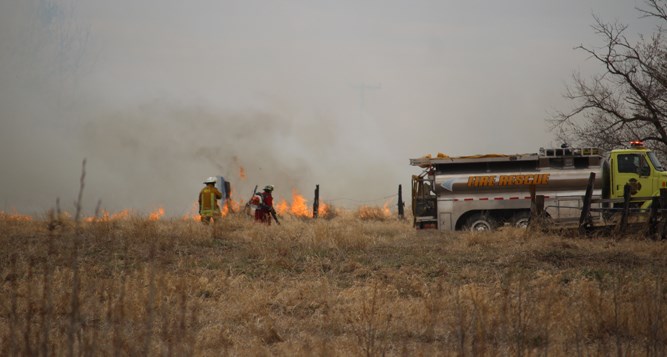This dry spring has had firefighters, municipal officials and agricultural producers worried. Fire has been a threat ever since April, with a number of fires getting out of control and requiring municipal fire departments (sometimes two or three) to control them.
As of last week, the Fire Ban was lifted in the RMs of Wallace-Woodworth and Pipestone. Prairie View Municipality also imposed a fire ban in late May. They have not lifted it as of press time.
A dose of rain in southwest Manitoba this past week has remedied the immediate high risk of grass fires getting out of control.
Judging by the amount of precipitation and the upcoming forecast of 28 and 30 degree days for the next week, I foresee more tinder dry situations.
According to Environment Canada, the Melita station recorded 15.6 mm of rain between May 15 and May 30. Shoal Lake station recorded even less at 12 mm, while Brandon received 43.2 mm, or just under two inches.
April was also dry. In fact, the wet years look to be a thing of the past, as 2018 and 2017 springs have also been dry. (Just for comparison, May 2016, saw 96 mm of rain in Virden area, May 2011 the area received 157 mm - the flood of a century.)
So, you won’t be fined if your fire gets away and you require help from the department. Call sooner than later is the best advice in the case of fire.
But before burning off an old scrub pile, slough or any other bothersome garbage, consider environmental costs and personal costs as well.
Smoke particles in the air are not good for you, if you get downwind, or for your neighbours.
Composting a scrub pile or old bales avoids releasing a lot of CO2 all at once.
While this looks like a perfect year to reclaim some land for haying or even for seeding, what will you gain from that day spent fire-guarding and burning, besides soot in your lungs?
Sometimes reclaimed low land is saline and doesn’t grow crop well due to years of being water-logged.
One heavy rain and the crop will drown out, or your sprayer or combine wheels will sink past the axels. Getting 30,000 pounds of expensive equipment bogged down in a busy season – not economical.
Burning sloughs at this time of year is a really bad idea for some other reasons. Wild things live there.
A host of small birds will be nesting now, raising a family around the edges or in the dead grass of potholes. Burning will wipe out a generation of these birds, some of which are considered endangered.
Pollinators such as wild bees also build and live around riparian areas. They are under threat and we need them to pollinate crops, fruit trees and vegetables.
So the burning ban may be off, but there’s more to consider before you strike the match.




